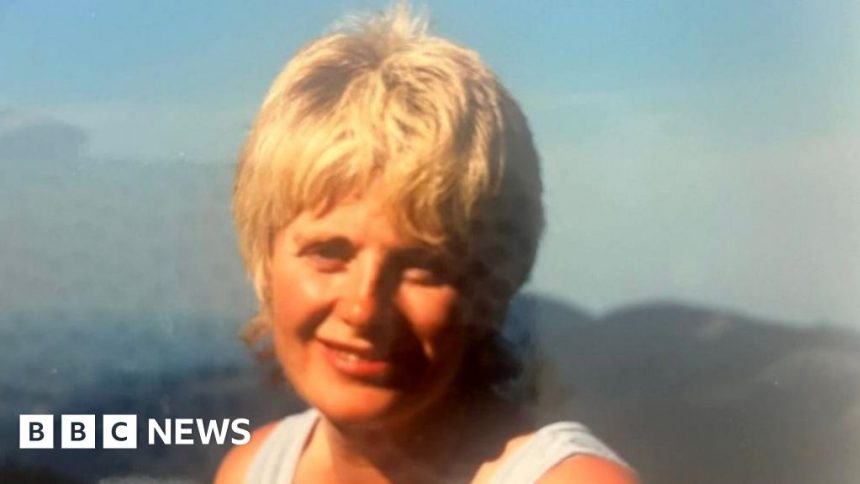‘Reckless slapping therapist cut mum’s life short’
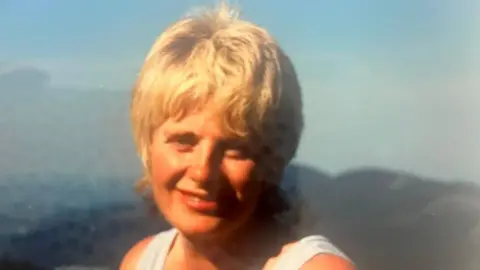 Matthew Carr-Gomm
Matthew Carr-GommThe family of a diabetic woman who died when she went to a slapping workshop and stopped taking her insulin have called for greater regulation for alternative therapies.
Danielle Carr-Gomm, 71, died at a retreat run by Hongchi Xiao in Wiltshire in 2016. He was convicted of gross negligence manslaughter, last Friday.
Her son, Matthew, said he wished she had done more research on Xiao – who had already been jailed for a previous offence in Australia where a six-year-old boy died.
The Department of Health and Social Care has urged anyone seeking therapy treatments to use qualified practitioners who are on a professional register.
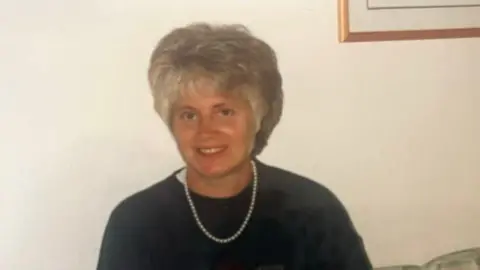 Matthew Carr-Gomm
Matthew Carr-GommXiao was an alternative healer and practised ‘paida lajin’ – a therapy in which people slap themselves and others to expel toxins from the body.
Ms Carr-Gomm, from Lewes in East Sussex, had type 1 diabetes, meaning she had to take insulin every day to keep her blood glucose levels under control.
“She was very loving and very caring, but also had a very hard-working ethic,” Mr Carr-Gomm said.
She had type 1 diabetes and struggled with injecting insulin, so was always looking for different ways to manage the condition.
“It made her more focused on her health…. and wanting to live,” he added.
When asked if she’d ever stopped taking her insulin before trying Xiao’s workshop, Mr Carr-Gomm said “never”.
“She was actually quite a risk-averse person….she was also quite naïve.
“I wish she’d done some more internet-based research and typed his name in and some of the things that’d happened,” he said.
‘Howling in pain’
When the boy died at one of Xiao’s workshops in Sydney in 2015 after his parents stopped giving him insulin, Xiao was jailed and banned from offering any medical treatment.
Mr Carr-Gomm strongly believes there is no question his mum would be alive if she had not attended Xiao’s workshop at Cleeve House in Seend, Wiltshire, in October 2016.
The court was told Ms Carr-Gomm announced on the first day of the workshop she had stopped taking her insulin, which Xiao “congratulated her on”.
She also began to fast, but soon became seriously unwell and was described as “howling in pain” by day three.
By the fourth day, she had died of diabetic ketoacidosis.
Mr Carr-Gomm hopes his mum’s death will raise awareness of the risks of alternative therapies.
“Some of it is great and has a lot of benefits, but in this instance it was reckless,” he said.
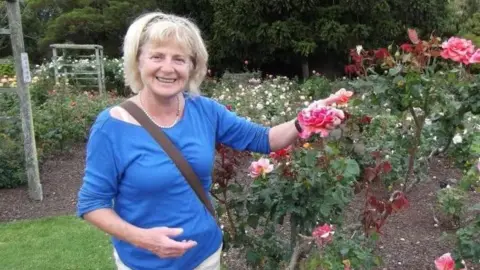 Matthew Carr-Gomm
Matthew Carr-GommIn the UK, apart from chiropractic, there is no professional statutory regulation of the complementary and alternative medicine sector.
This means it is legal for anyone to practice, even if they have no formal qualifications or experience.
Mr Carr-Gomm believes this needs to change.
“It is extraordinary it is not… just like the medical profession have a degree of responsibility for any kind of malpractice, the same needs to apply to this,” he added.
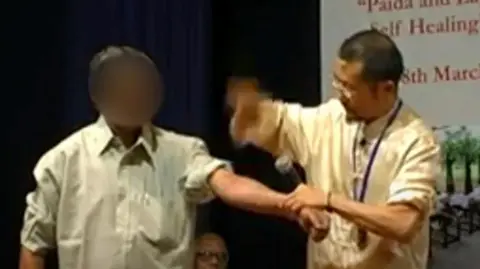 Crown Prosecution Service
Crown Prosecution ServiceRob Andrews is a doctor and associate professor of diabetes at the University of Exeter.
He believes NHS waiting lists may also be encouraging more people to seek alternative treatments.
“We do need to work out how we regulate this, and that’s a really big thing to do because (it) has to be at all levels,” he said.
“So there are drugs that people buy that aren’t the drugs that they buy. There are people who see people who say they’re doctors who aren’t doctors, and there are people who falsify papers to say that they’re experts in areas that they’re not.
“I suspect there are a lot of people who come to harm across the year” he added.
In response a spokesperson from the Department of Health and Social care told the BBC: “No-one should take advantage of vulnerable individuals.
“It is vital that anyone seeking therapy treatments uses qualified practitioners who are on a statutory professional register, or a voluntary register accredited by the Professional Standards Authority.”
How do I choose the right practitioner?
Complementary and alternative medicine (CAM) is treatment that falls outside of mainstream healthcare.
These treatments range from acupuncture and homeopathy, to aromatherapy, meditation and colonic irrigation.
You can learn more about the evidence for particular CAM practices by reading about individual types of treatment on the NHS website
The availability of CAM on the NHS is limited, and in most cases the NHS will not offer such treatments.
The National Institute for Health and Care Excellence (NICE) provides guidance to the NHS on effective treatments that are value for money.
NICE has recommended the use of CAM in a limited number of circumstances.
The NHS says that if you suspect you may have a health condition, first see your GP.
Do not visit a CAM practitioner instead of seeing your GP.
Drastic weight loss
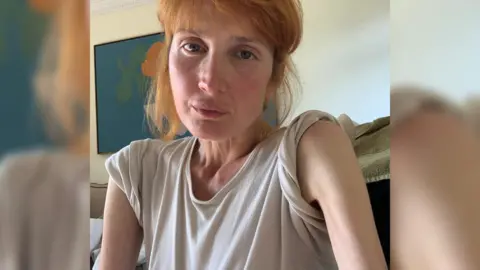 Irena Stoynova
Irena StoynovaLike Ms Carr-Gomm, Irena Stoynova, 39, from Hampshire, sought a holistic approach when she was diagnosed with non-Hodgkin lymphoma, a type of cancer.
She had previously lost faith in medical professionals after a bad experience in her 20s, so following her diagnosis looked for alternatives to conventional treatment.
She described staying up all night researching and came across a juicing diet, sold online as an alternative to cancer treatment which claimed the body could “heal itself”.
Alongside this she tried a restricted raw-food diet, intermittent fasting, boiling herbs and special teas.
But she became so unwell, she almost died.
“I woke up in the hospital. I was covered in wires and tubes. I had two drains on my left lung and the right lung opposite, and I couldn’t move because my tummy was full of fluid,” she said.
She had lost around 20 kilograms (three stone) and describes looking like an 80-year-old woman.
At that point Ms Stoynova said she “surrendered” and was persuaded by medical staff to undergo chemotherapy.
She has now made a full recovery and said “the side-effects of chemo are a piece of cake compared to the side-effects of holistic ways of healing”.
She would also like to see regulation of the sector and wants to warn others of the risks of following alternative treatments.
“It’s great to have beliefs, but it’s even greater if they’re backed by science.
“I just hope that one person – even one – hears my story and just doesn’t repeat my mistakes,” she added.
Neither Mr Carr-Gomm or Ms Stoynova are against alternative medicine and therapies – but want to warn others to be careful.
Follow BBC Wiltshire on Facebook, X and Instagram. Send your story ideas to us on email or via WhatsApp on 0800 313 4630.



